Pilot Grants
Recognizing that the engine of R&D is powered primarily through fundamental, mechanistic science, the Colton Center for Autoimmunity funds discovery pilots and other similar research programs. By funding high-risk, high-reward projects, we aim to catalyze new discoveries on fundamental mechanisms of immune function relevant to human autoimmune disease. Although excellent science is always the driving factor, our focus is to prioritize research that identifies or develops new therapeutic targets, exploits new treatments or interventions for mechanistic discovery, introduces new strategic collaborations, and garners additional funding support to promote the long-term sustainability of the Colton Center in its war on autoimmunity.
FY25 Awardees
Comprehensive Mapping of Antigenic Landscapes in Sjögren’s Disease Using Enhanced T- Scan Technology
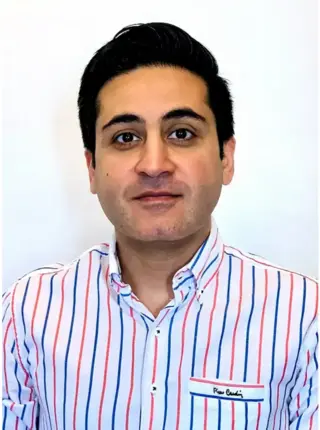
Mohammad Haj Dezfulian, an Assistant Professor of Pathology and Laboratory Medicine, is leading a project that aims to utilize advanced T-Scan technology to identify antigens recognized by T cells in Sjögren’s disease. By expanding the analysis to include both canonical and non-canonical self-antigens and also viral antigens, this project seeks to uncover novel mechanisms of autoimmunity and identify potential therapeutic targets.
Targeting the cytokine activin A for the treatment of autoimmune diseases
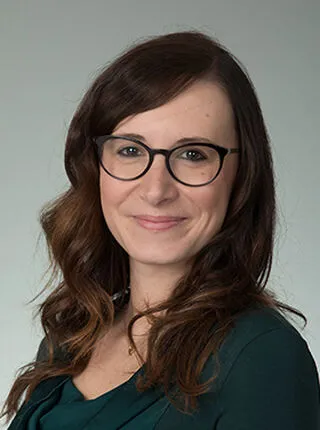
Michela Locci, an Assistant Professor of Microbiology, is exploring the efficacy of an activin A-neutralizing monoclonal antibody, developed by her team as part of her FY24 Colton Pilot award, for the treatment of Rheumatoid Arthritis (RA) and Systemic Lupus Erythematosus (SLE)—two autoimmune diseases characterized by high activin A levels.
Use of AI-enhanced pattern recognition and autoantibody discovery to improve anti-nuclear antibody testing

Nina Luning Prak, a Professor of Pathology and Laboratory Medicine, is leading a project that integrates AI-enhanced image analysis with advanced multiplex autoantibody profiling to improve the performance and clinical utility of ANA testing. By leveraging datasets of digital ANA images and developing targeted assays, this project aims to modernize the ANA test for systemic autoimmune disease diagnostics and discover novel autoantibodies.
A novel skin-based approach to treat lupus nephritis

Taku Kambayashi, a Professor of Pathology and Laboratory Medicine, is developing a novel treatment strategy using the topical application of a drug that induces skin-derived factors to protect against lupus nephritis. This project will help determine how the topical drug treatment and these skin-derived factors protect against lupus nephritis in animal models, with the ultimate goal of developing a clinical treatment for this disease, which has few existing therapeutic options.
FY24 Pilot Awardees
Targets of autoimmune attack in acquired aplastic anemia.
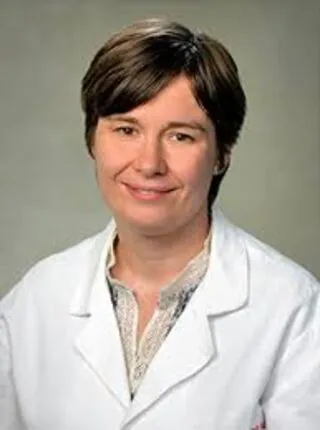
Daria Babushok, Assistant Professor of Hematology-Oncology, is leading a team to improve the understanding of autoimmune pathogenesis of acquired aplastic anemia (AA). Dr. Babushok’s study leverages the specificity of human leukocyte antigen (HLA) alleles to identify targets of autoimmune attack in AA and develop an in vitro model of this disease.
Precision Targeting of Lupus-associated IGHV4-34+ Pathogenic B Cells using Chimeric Antigen Receptor T Cells.

Marco Ruella, Assistant Professor of Hematology-Oncology, is leading a team exploring the issue of precision cellular immunotherapy of System Lupus Erythematosus (SLE). Dr. Ruella’s proposal focuses on the development of novel cellular therapies effective against the pathogenic VH4-34+ B-cells in SLE while sparing normal healthy B-cells.
Penn/CHOP Immune Kidney Disease Collaboratory.
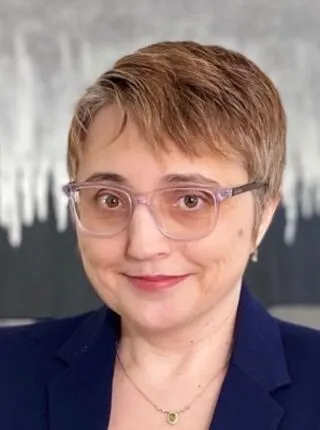
Katalin Susztak, Professor of Medicine (Renal-Electrolyte and Hypertension) is leading a team to harness high-dimensional multi-omics analyses with a potential to define the mechanism of IgA nephropathy (IgAN), an autoimmune disease of the kidney, paving the way for the development of targeted therapeutics. One of the goals of this study is to establish a Penn/CHOP Immune Kidney Disease Collaboratory in conjunction with the Penn/CHOP Kidney Innovation Center and create a registry to catalog existing IgAN patients and enroll all new patients for deep phenotyping.
Targeting the cytokine activin A for the treatment of Rheumatoid Arthritis.

Michela Locci, Assistant Professor of Microbiology, is leading a team exploring the treatment of Rheumatoid Arthritis, an autoimmune disease characterized by high activin A levels. Dr. Locci’s study proposes to explore the efficacy of an activin A neutralizing monoclonal antibody developed by her research team for the treatment of Rheumatoid Arthritis.
Developing a universal therapy for inflammasomopathies.

Cornelius Taabazuing, Presidential Assistant Professor in the Department of Biochemistry and Biophysics, is leading a team to elucidate the mechanism of cytokine maturation during inflammasome activation, with the aim of developing a universal cure to treat inflammasomopathies, a subset of autoinflammatory disorders caused by sterile activation of inflammasomes.
Characterizing Autoimmune Phenotypes in Moderate and Severe Asthma.

Dr. Himes, Associate Professor of Informatics, is recruiting patients with moderate and severe asthma and healthy controls to identify differences in their immune profiles. The study will characterize changes in immune profiles associated with beneficial response in patients who initiate biologic treatment.
Auto-Inflammation Induced by Viral Persistence in Long COVID

Maayan Levy, an Assistant Professor of Microbiology, is leading a team focused on elucidating the mechanisms of post-viral syndromes in Long COVID, with a special focus on the role of the microbiome and intestinal epithelial cells.
Molecular determinants of systemic immune reactivation in patients with ANCA-associated vasculitis.
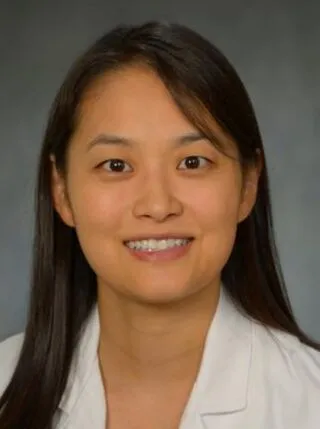
Rennie Rhee, Assistant Professor of Medicine in Rheumatology is leading a team studying the molecular changes that occur antecedent to clinical relapse in patients with antineutrophil cytoplasmic autoantibody (ANCA)-associated vasculitis (AAV).
An integrative multi-modal approach to define and diagnose pediatric autoimmune neurological disorders
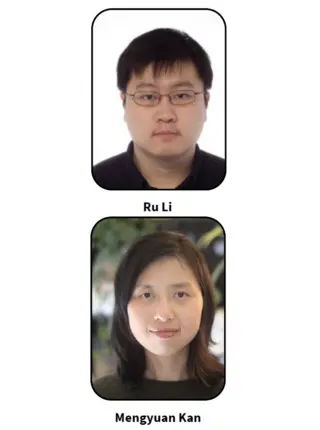
Rui Li, Research Associate in Neurology, and Mengyuan Kan, Research Associate in Informatics, have proposed to use integrative analyses of newlyacquired flow cytometry and scRNA-seq data to build a neuroimmune landscape of pediatric-autoimmune neurological disorders, or ANDs.
FY23 Pilot Awardees
Profile and impact of autoantibodies in hospitalized and non-hospitalized patients with post-acute sequelae of SARS-CoV-2 infection
Benjamin Abramoff, Assistant Professor of Clinical Physical Medicine and Rehabilitation, will lead a team in the analysis of autoantibody and ACA profiles and neuroscience-antibodies in preciously hospitalized and non-hospitalized patients, comparing these profiles to ongoing symptoms reported by patients, comparing these profiles to ongoing symptoms reported by patients to evaluate the chronic contribution of autoantibodies and ACA to post-acute sequelae of SARS-CoV-2 infection (PASC).
Development of an Engineered T cell Immunotherapy as a Curative Therapy for Autoimmune Thrombotic Thrombocytopenic Purpura

Vijay Bhoj, Assistant Professor of Pathology and Laboratory Medicine, will test the hypothesis that Autoimmune Thrombotic Thrombocytopenic Purpura (aTTP), a disease caused by antibodies that inhibit the enzyme ADAMTS13, can be treated with the stringent depletion of ADAMTS13-specific B cells. His team proposes to develop an engineered T-cell liked therapy, termed chimeric autoimmune antibody receptors (CAARs).
In vivo target identification and machine-learning validation of autoimmune T cell tissue residence
Christoph Ellebrecht, Assistant Professor of Dermatology, will study autoimmune skin conditions driven by skin-infiltrating CD4+ or CD+ T lymphocytes thought to differentiate into non-circulating tissue resident memory (TRM) cells upon entering the skin niche11. The study proposes to uncover novel factors that support or oppose human T cell tissue residence and therefore to address a key mechanism of T cell mediated autoimmune disease etiology, which may establish a novel therapeutic approach to suppress and potentially eliminate TRM.
Therapeutic targeting of nucleic acid sensors
Jonathan Miner, Associate Professor of Medicine, will develop therapies to target cystolic sensors of DNA and RNA, which have been implicated in a variety of autoimmune and inflammatory diseases. The study’s first aim is to create gene therapies for rare autoimmune diseases, with a secondary aim of developing small molecular inhibitors for both common and rare autoimmune disease.
Biomarker discovery for early prediction of autoimmunity in immunotherapy patients through deep immune profiling and temporal graph convolutional networks.
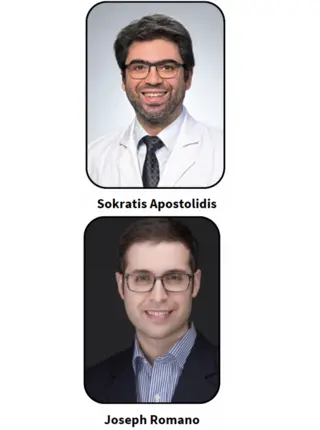
Sokratis Apostolidis, Assistant Professor of Medicine in Rheumatology, and Joseph Romano, Assistant Professor of Informatics, are using human and mouse samples to study the immune dysregulation that follows checkpoint inhibition and eventually results in development of new onset autoimmunity.



